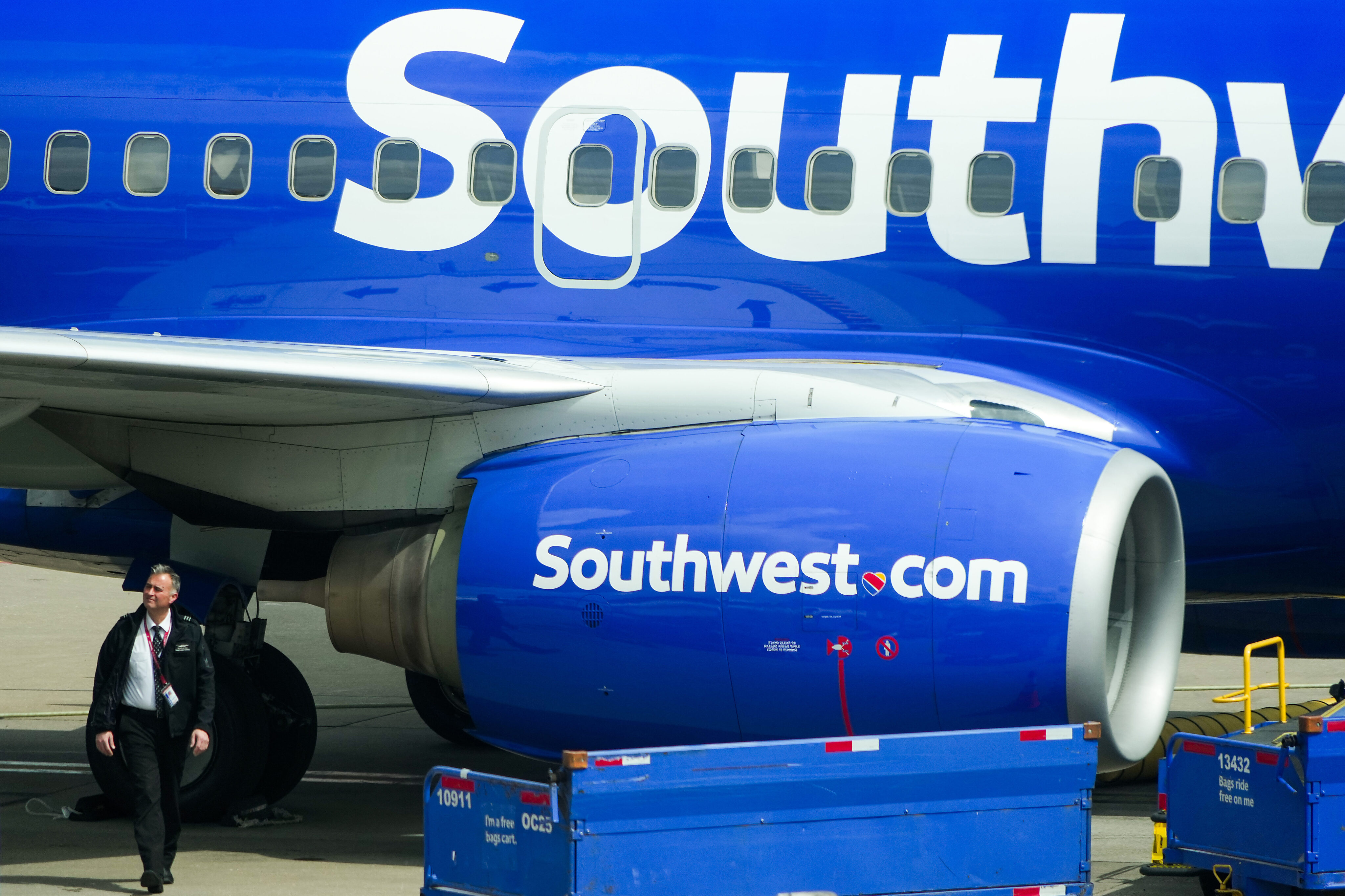Watchdog, is it true that few products used in health care today are made in America? Most are made in China or India, right?
Yes, that’s a given. My research led me to one of the most powerful companies you never heard of. I learned that the nation’s top negotiator for the purchase of drugs, medical supplies and devices for hospitals and out-patient clinics is headquartered here in our backyard.
This Las Colinas powerhouse is the top GPO – or group purchasing organization. It’s a private, for-profit middleman that negotiates pricing and purchases for everything from cotton balls and medical masks all the way up to ventilators.
What’s the company’s name?
Vizient.
You’re right. Never heard of them. OK, so with all these shortages, they haven’t had the best year, have they?
If Vizient could do it all over again, I’m sure they’d do things differently. Their goal is to supply their clients with what they need. Here, they dropped the ball.
Vizient admits this?
That’s my characterization. The company says it’s a leader in the fight against the coronavirus. A corporate news release explains that Vizient CEO Byron Jobe visited the White House to give suggestions to the Coronavirus Task Force.

Company spokeswoman Angie Boliver told me how the company was the first to sound the alarm about the shortage of the anti-malaria drug hydroxychloroquine as well as shortages of drugs used along with ventilators.
Why is this important?
Remember a story I wrote a couple of weeks ago about the North Richland Hills medical mask maker who struggles to compete with China mask-makers on cost? Well, who do you think negotiates the deals with companies that operate in China? These GPOs.
What area hospitals work with Vizient?
Baylor, Scott & White Health, Parkland Health and Hospital System, Children’s Medical Center, John Peter Smith Hospital/JPS Health Network and Cook Children’s Health Care System, to name a few.
Vizient represents half of all acute-care hospitals and 95% of all university-related medical centers in the U.S. With so many member-clients, Vizient has extraordinary buying power, claiming a leading role in millions of dollars in purchases per year.
So what’s the problem? Sounds like a good deal. Buying in bulk is supposed to lead to savings.
On the surface, yes. But there are quirks in the GPO system that are mind-numbing — and a case can be made that this is one reason why hospital costs are so high.
How so?
For starters, some manufacturers can’t get into the Vizient products catalog. Vizient is the gatekeeper for entry into hospitals. Smaller companies may lose the incentive and the investment to be innovative. They go out of business. That’s not good.
No, it isn’t. What else?
Here’s the one that gets me. You know how it’s against the law for U.S. companies to accept money from companies that want to be included in a purchasing process — or pay money to get in on the deal?
Yeah, those are like kickbacks or bribes.
Right. Well, in the GPO industry those rules don’t apply.
Whaaa?
Yes. Congress passed a law in 1987 that exempted medical GPOs from the anti-kickback law. It doesn’t apply to them.
So there are kickbacks and bribes?
Well, they don’t call it that. The industry can call these vendor fees or rebates or prebates or administrative costs or marketing fees. Whatever they’re called, critics charge that this money is paid by suppliers and manufacturers to get into a GPO’s catalog. It’s completely legal.
Who gets paid?
I can’t tell you that. My written questions to Vizient about compensation to various parties including, potentially, hospital administrators, went unanswered.
It sounds like the movie Jerry McGuire. Show me the money. But in the end, doesn’t Vizient save money for their clients?
Yes, but apparently not always. GPO critics point to government studies that show how prices are sometimes inflated. Everyone who’s ever seen a hospital bill can understand.
How does this apply to the Made in America campaign?
In my opinion, it’s a huge hindrance. Critics say GPOs are major contributors to moving our manufacturing offshore.
What does Vizient say?
I didn’t get an answer on that one either. Made in America is not a major part of a GPO’s game plan. It’s more like Made in China or Made in India.
Could they move industries back to America?
The manufacturers would do that. But you’d think with its huge buying power, a company like Vizient should lead by example.
A recent story in The American Prospect is headlined “Behind the Coronavirus threat, a middleman destroying prescription drug markets.” The story states that dependence on China and India for drugs is “a health security threat.”
If the process truly is pay-to-play, that sounds like this concentrated buying power is anti-competitive and counter to free market capitalism.
You’re catching on.
Are drug costs lower because of this buying power?
The industry’s association says yes. But I’ve seen government studies that claim prices are sometimes inflated rather than lowered.
Where’s Congress on this?
Last year, Sen. Richard Blumenthal, D-Conn., raised this in an antitrust committee hearing. He said, “GPOs were designed to keep costs down. But recent research has concluded that, in fact, they’re contributing factors to rising hospital costs, medication shortages and stifling introduction of innovative products from smaller companies.”
If we put GPOs out of business, wouldn’t that force hospitals to spend their time shopping and negotiating pricing? Wouldn’t you rather have them concentrate on providing health care?
The idea of group purchasing is good, but it needs to be more of a co-op model, which is how the industry began a century ago. Right now, the big players essentially purchase market dominance for their products.
Who says?
A 2018 story in The Journal of the American Medical Association explains that GPOs help cut down the number of manufacturers producing generic drugs. The authors write, “Although there is limited evidence to support the direct link between GPOs and drug shortages, the vendor fee model of GPOs has the potential to create barriers to market entry for manufacturers by rewarding fewer, larger manufacturers and thus increasing dependence on fewer supply chains.”
Now that flaws in the system are clearer than ever, how can this be fixed?
The fix isn’t difficult, according to Phillip L. Zweig, a medical researcher and activist who leads Physicians Against Drug Shortages. He suggests that Congress should repeal the exemption given to GPOs when it comes to passing money across the table. The amendment that exempted the industry from the no-kickbacks rule is called the “safe harbor” exemption.
What does Vizient say about that?

Again, ignored my question. But the company tells me it negotiates discounts, not inflated prices, that all bidding is done in public, and membership is completely voluntary. Oh, and today’s drug shortages? Not its fault, but lessons learned.
Spokeswoman Boliver said, “The industry as a whole will hopefully be more prepared for future disruptions.”
Watchdog, this sounds like too much concentrated power in the hands of a few. Yet most people have never heard of this company or the group purchasing industry.
Yup. They haven’t. Not until now.
Dallas Morning News researcher Meagan Hurley contributed to this report.
Read the latest Watchdog reports on corona virus:
I thought I caught the coronavirus. My mind was playing tricks on me. You, too?
Become a citizen of Watchdog Nation. Join Dave Lieber and learn to be a super-consumer.
Read Dave Lieber’s series on property taxes.
Read Dave Lieber’s story on how to shop for electricity.
Read Dave Lieber’s story on how to search for a good builder or roofer.
Subscribe: PLEASE support The Watchdog’s brand of straightforward journalism designed to save you time, money and aggravation. Treat yourself to a DallasNews.com full digital subscription for only $2.99 a week and NEVER MISS The Watchdog’s TWO reports each week. Sign up here.
Watchdog newsletter: Sign up for The Watchdog's FREE weekly newsletter to keep up: click here.
Watchdog story page: You can't afford to miss The Watchdog. Follow our latest reporting always at The Watchdog home page.
Do you use Facebook? Connect with The Watchdog on our Facebook group. Search for "Dallas News Watchdog Posse."
The Dallas Morning News Watchdog column is the 2019 winner of the top prize for column writing from the National Society of Newspaper Columnists. The contest judge called his winning entries "models of suspenseful storytelling and public service."
Read his winning columns:
* Helping a waitress who was harmed by an unscrupulous used car dealer


:no_upscale()/cloudfront-us-east-1.images.arcpublishing.com/dmn/33U7Q4NH5YEB2NHWWSAQUB77RQ.jpg)
:no_upscale()/cloudfront-us-east-1.images.arcpublishing.com/dmn/IJB2S27DYFGIXABBV5VZOCGA7U.jpg)
/cloudfront-us-east-1.images.arcpublishing.com/dmn/CLNOYLF5LE4U45ZWV5ALQV4WX4.jpg)
/cloudfront-us-east-1.images.arcpublishing.com/dmn/WQ2PADIFGVCITLLHLVMQ3GUQHM.jpg)
/cloudfront-us-east-1.images.arcpublishing.com/dmn/IWJER7IKSNCRTKGYNR3ZY7TCJY.PNG)




